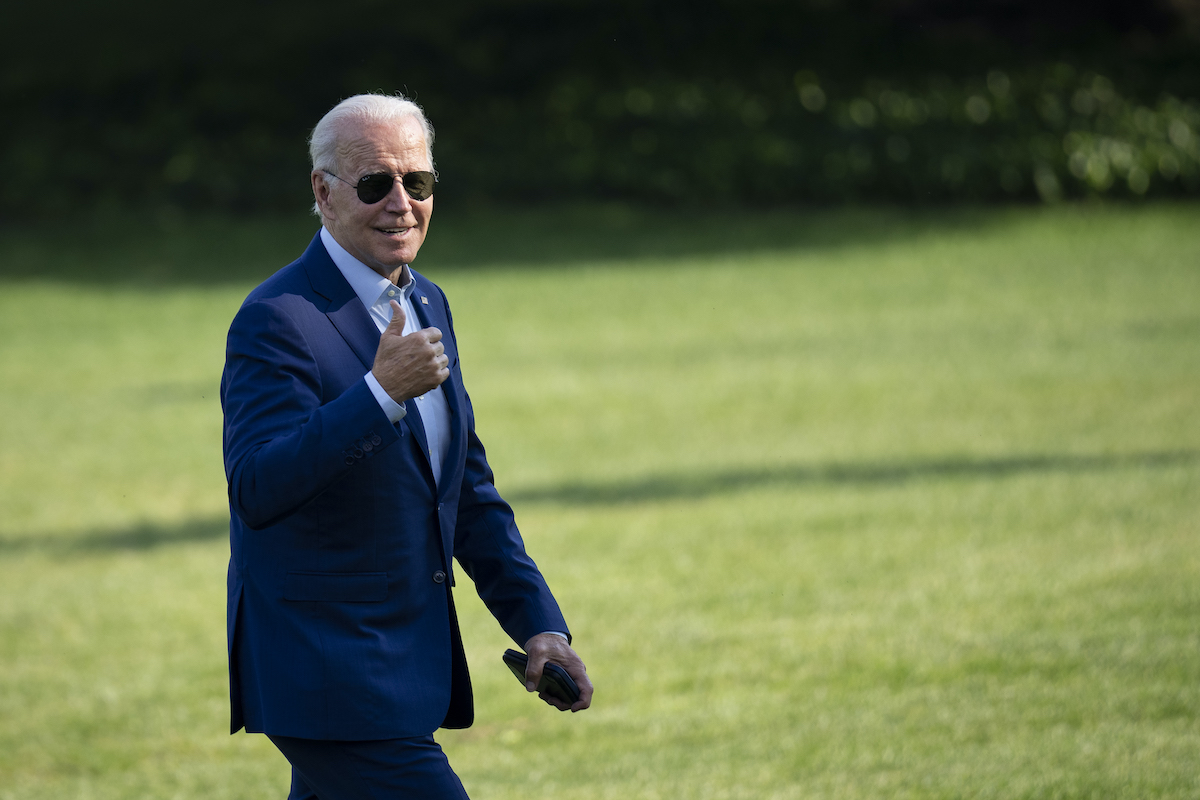With midterm elections around the corner, both Republicans and Democrats are pulling out all the stops. The GOP seems to be actively falling apart with all the drama surrounding their latest senate nominees Dr. Oz and Herschel Walker. Now the Democrats have made more tangible changes like passing the Inflation Reduction Act and canceling some student loan debt.
According to polls, left-wing candidates seem to be favored winners in many senate and governor elections. Even though this is a midterm election, the power balance in Congress and throughout the states could change with the November vote. With this in mind, President Joe Biden made his next big move. On October 6th, President Biden announced that he would pardon convictions of marijuana and change the federal classification of the drug. Let’s go over what this means.
Who gets a pardon?
President Biden’s statement outlined that anyone who was federally convicted of marijuana possession would receive a full pardon. If someone received jail time or fines for possessing marijuana, those convictions will be removed from their record. This only applies if the conviction was at the federal level. At this point, nothing will change for those with state convictions.
The reason behind the move for pardons is simple. Many states now have relaxed laws on marijuana and the federal rules are no longer in step with the view most Americans hold. Having the convictions on their records limits people from getting jobs or getting homes. Imagine someone not being able to rent or buy a house because of possession of a now-legal drug. The pardons are just the first logical step of many concerning marijuana.
Why is Marijuana a Schedule 1 Narcotic?
After the pardon announcement, President Biden assured America that he would also have Secretary Becerra and the Attorney General review how marijuana falls under federal law. Right now it is considered a Schedule I narcotic, the same as heroin, LSD, and ecstasy. According to DEA.gov, this is “defined as drugs with no currently accepted medical use and a high potential for abuse.” The legal system often punishes possession of Schedule I drugs with the highest severity. In effect marijuana, a popular recreational, medicinal, and almost non-lethal drug, is considered one of the worst drugs. However, the opioids (such as oxycodone and fentanyl) that are responsible for massive overdose-related deaths in America fall under the Schedule II category.
So why is marijuana regulated so harshly on the federal level? For the answer, we only have to look at two of the usual suspects: racism and Republicans. Marijuana, also known as cannabis, has a long history of unregulated use in the United States. In the 1930s, a federal law went into effect to tax sales of the drug, similar to alcohol. During the 1950s and 1960s, America saw a rise in counter-cultures, social changes, and civil rights movements. In response to these newfound freedoms, conservative Americans grew fearful and elected Richard M. Nixon as president to make things right.
War on “Drugs”
In 1970, President Nixon signed the Comprehensive Drug Abuse Prevention and Control Act of 1970 into law and created the still-used drug classification system. This was one of the biggest tools used in Nixon’s War on Drugs. Using cannabis in America had been long associated with Hispanic and Black communities before gaining popularity in the Beatnik and hippy movements. Basically, everyone who white conservatives feared or didn’t like used cannabis, so it became one of the biggest targets in the War on Drugs.
In an infamous 1994 interview, John Ehrlichman, Nixon’s chief of domestic policy, said the quiet part out loud and told us everything we needed to know. He said to journalist Don Baum,
“We knew we couldn’t make it illegal to be either against the war or black, but by getting the public to associate the hippies with marijuana and blacks with heroin, and then criminalizing both heavily, we could disrupt those communities. We could arrest their leaders, raid their homes, break up their meetings, and vilify them night after night on the evening news. Did we know we were lying about the drugs? Of course we did.”
What started as a racist plot in the 1970s is finally starting to be undone. Even if it is only at the federal level, it will lead the way for changes across the states. Maybe you should put on some good music, get some tasty snacks, and celebrate this transformative step.
(featured image: Drew Angerer/Getty Images)









Published: Oct 9, 2022 10:00 am